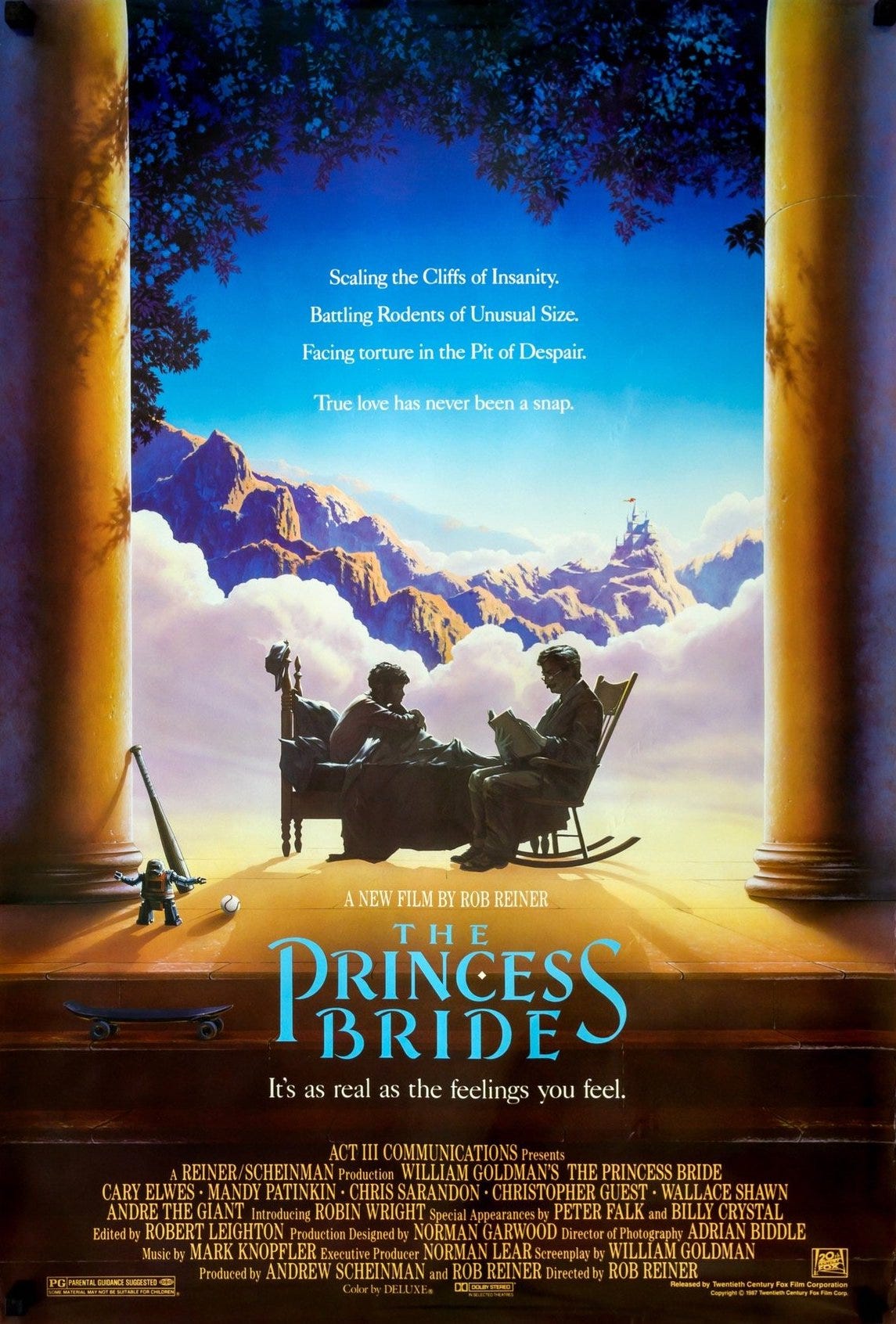We Must Address a Glaring Flaw in The Princess Bride (1987) and Why it Happened
The Princess Bride is a masterpiece. It’s a perfect film full of romance, adventure, comedy, and a wonderful coming-of-age wrap-around narrative device. I love this movie.
But sometimes a perfect film can have flaws. I know this sounds like a contradiction, and indeed, it is, but that’s beside the point. A perfect film doesn’t have to be flawless—it just has to be perfect enough for the viewer to overlook such flaws. This is one of those cases.
There is one flaw in particular, though. One that jumps out at me as so egregious that it must be on purpose. I just can’t decide what purpose it must be.
So we have Westley and Buttercup, our couple. They are in love. True love, in fact, as they stress throughout the tale. But Westley is a poor farmhand, so he feels compelled to make his fortune overseas so that they can marry and he can provide. Seems reasonable, in an antiquated sense at least. But then the evil Prince Humperdinck swoops in and claims Buttercup as his bride, which is a real bummer.
All of that makes perfect sense in this story, of course. And it makes sense when Westley returns in a disguise—a “man in black” as it were—to steal Buttercup away from the three outlaws who’ve kidnapped her. (Did he even need this disguise? Not really. Nobody knew who he was anyway, so the only advantage this disguise gave him was intimidating his foes, though they seemed wholly unintimidated by him. But I digress.)
It’s the point where Westley (in disguise) finally frees Buttercup from her kidnappers that gets me. More specifically, it’s the fact that Buttercup cannot seem to decipher that it’s Westley under that very thin disguise.
Now, I understand why she would assume he’s someone else before getting a closer look. Westley was believed to have been killed by the Dread Pirate Roberts (a great villain name), so when this swashbuckling man in a mask and a hood shows up to steal her away, it makes sense that she assumes he’s the aforementioned pirate.
But she should’ve known. From even 25 feet away, it is quite obvious that the man in black is Westley. He has a very thin mustache now, but that’s quite a poor face covering. His ears, his nose, his lips are all bare. And his voice, which is very distinct, should’ve been a dead giveaway, especially when they begin conversing. (I know she was led to believe that Westley had died, but there was no proof, my dear. You have to trust your heart. This is true love we’re talking about!)
This, I’m certain, is not simply a mistake, so perhaps “flaw” is misleading. There must be a reason for this costume design and this character choice.
The easiest answer may be the best one: It’s funny. It’s funny! It’s not a joke or a gag, but it’s a silly little bit that one might pick up on and smile about, especially on repeat viewings. Which, I suppose, would make it not a flaw at all. Maybe that’s all there is to it, but that’s not enough to fill a weekly newsletter.
Thankfully, there is more to it. Given the nature of this film—one whose central narrative is bookended by a grandfather reading his grandson a bedtime story, complete with running commentary on the nature of fairy tales such as this—it’s probably a bit of satire as well. Westley certainly would not be the first character in literary history to don a cheap, unconvincing disguise and yet somehow flummox a group of people who should know better.
There’s one more thing I can’t shake, though. William Goldman, who wrote the novel and the screenplay, was a stone-cold legend in his field. (His Adventures in the Screen Trade is a great read.) But it wasn’t exactly uncommon for male screenwriters of his time to underwrite their women characters.
Buttercup is the sole female character of consequence in this film (shouts out to Carol Kane, though), and she’s a bit limited as a result. Her motivations all hinge upon Westley and Prince Humperdinck, and we know very little about her other than who she does and doesn’t want to marry. Would Goldman write a princess character who is simply not aware or intelligent enough to see through her true love’s disguise and leave it at that? I’d love to give him the benefit of the doubt here, but it’s certainly possible.
But we can forgive such flaws as this, can’t we? That’s what you do with true love.
The Princess Bride is now streaming on Disney+, and it’s available to rent elsewhere.





